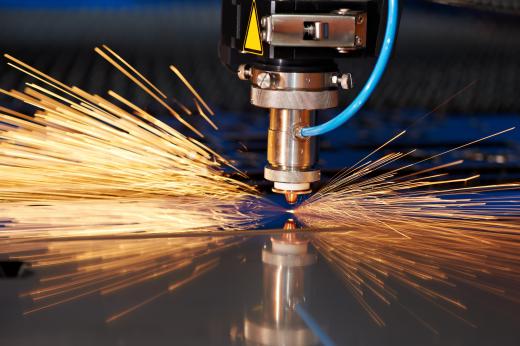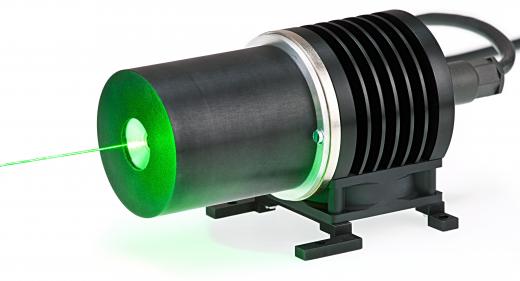"Laser cutting tool" is a broad term that covers a variety of cutting tools. Although there are only a few basic laser types, the adaptations and uses of these tools present a range of possibilities. From the high-speed steel-cutting lasers used in industrial applications to the laser engraving machines used by artists to create beautiful works of art to the micro jet lasers that are capable of producing clean cuts while cooling the cut materials, laser cutting tools are becoming a popular choice in manufacturing and various industries.
The type of laser used to power a cutting tool gives it specific characteristics and properties. These cutting tools fall into three basic categories: carbon dioxide (CO2), neodymium (ND) and neodymium yttrium-aluminum-garnet (Nd-YAG). These three types of lasers are used in laser tools that perform six laser cutting functions.

The laser micro jet is a unique laser cutting tool because the laser is contained within a jet of water that guides it to the cut. This method of laser cutting is much faster than traditional, dry laser cutting, and it offers several advantages. The most noteworthy advantage is the water jet, which cools the cut material and clears debris while guiding the laser.

Vaporization cutting, also called keyhole cutting, focuses the beam of the tool in a specific area to start the cutting process. As the area heats to the boiling point, it forms a small indentation called a keyhole, which rapidly expands, creating an even bigger hole. Cutting tools that employ vaporization cutting are usually used on materials that do not melt, such as carbon, wood or thermoset plastic.

Melt and blow cutting laser cutting tools are used primarily for cutting metal and metal alloys. This process is similar to vaporization cutting, with one subtle difference. Instead of using additional heat from the laser to create a bigger hole, the melt and blow laser cutting tools use a blast of compressed gas to push the melted material out of the cut after the material has reached its boiling point.

Thermal stress cracking laser cutting tools are commonly used by artists for cutting glass or acrylic. The process of thermal stress cracking takes advantage of the natural characteristic of brittle materials to crack when exposed to thermal expansion. By moving the focus of the laser, the artist can control the movement and depth of the crack.
Reactive cutting, or flame cutting, is used for cutting very thick metals. The cutting tools used for this process produce an effect that is similar to the cutting torch used in welding, but the laser beam provides the heat source rather than the oxy-fuel flame of the cutting torch. These cutting tools are very powerful and can cut flat sheet materials or thick carbon steel with a relatively conservative amount of power.
Surface finishing tools are another variation of laser cutting tools. Laser machining is used to produce ultra-fine finishes on manufactured products. Personalized products are made using laser engraving machines. These tools often sport low-powered lasers that merely cut or scratch the surface of the material.
